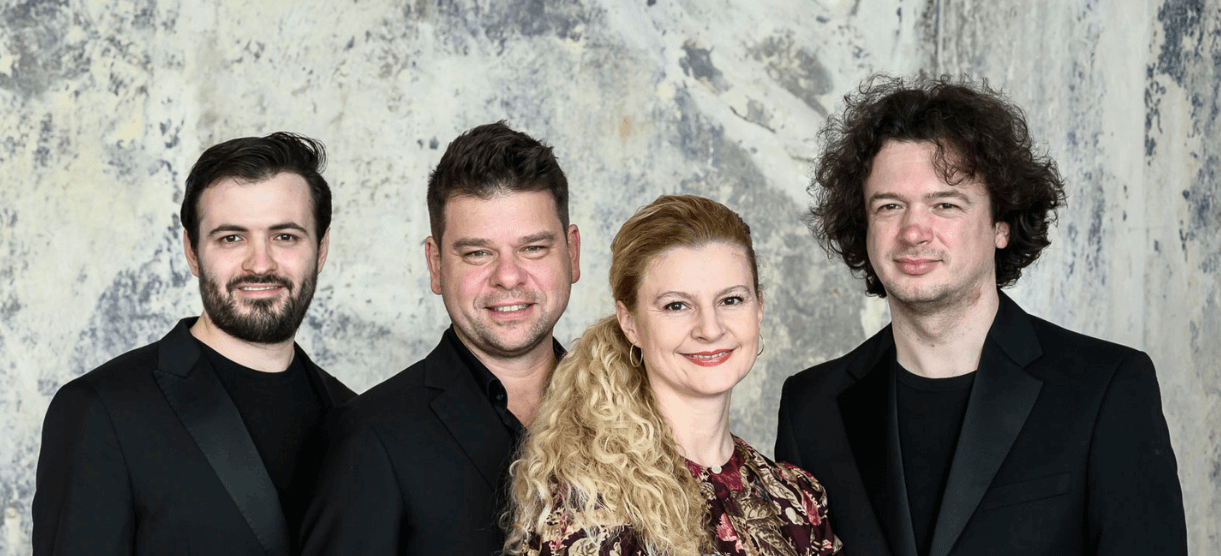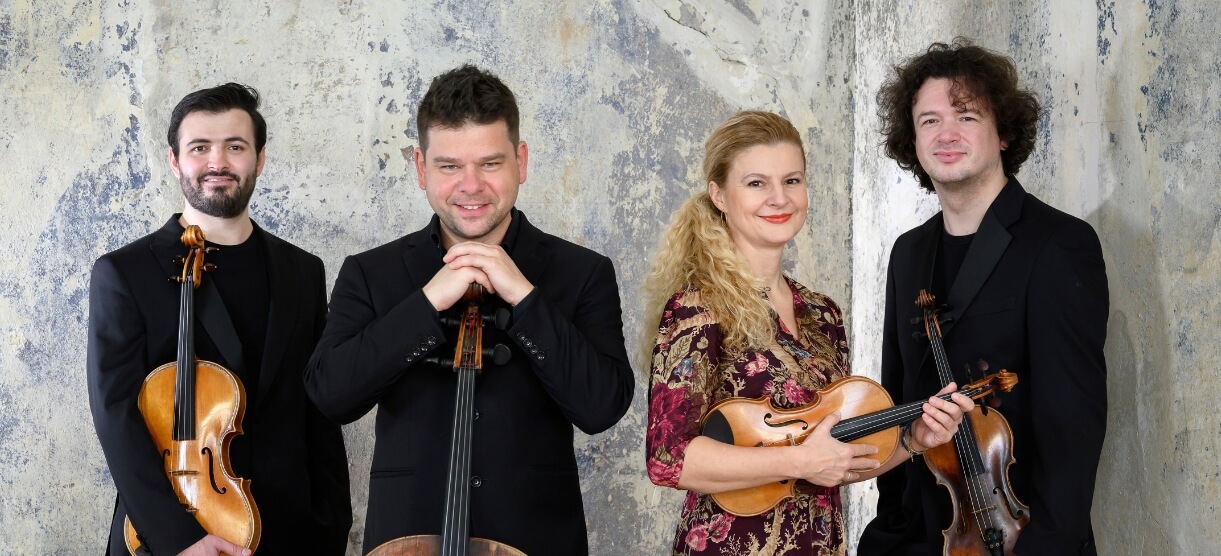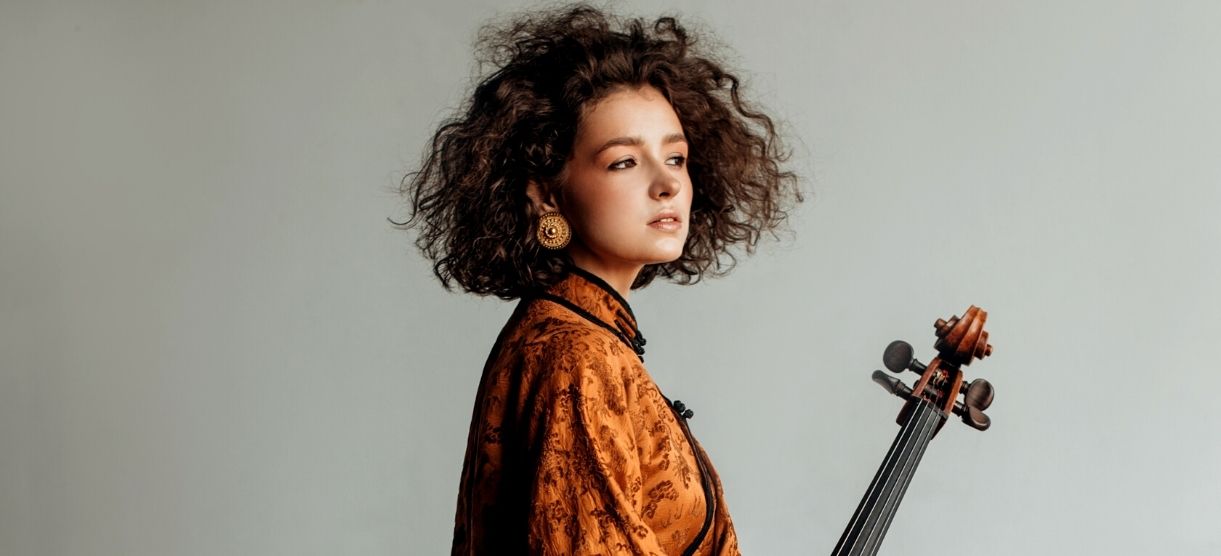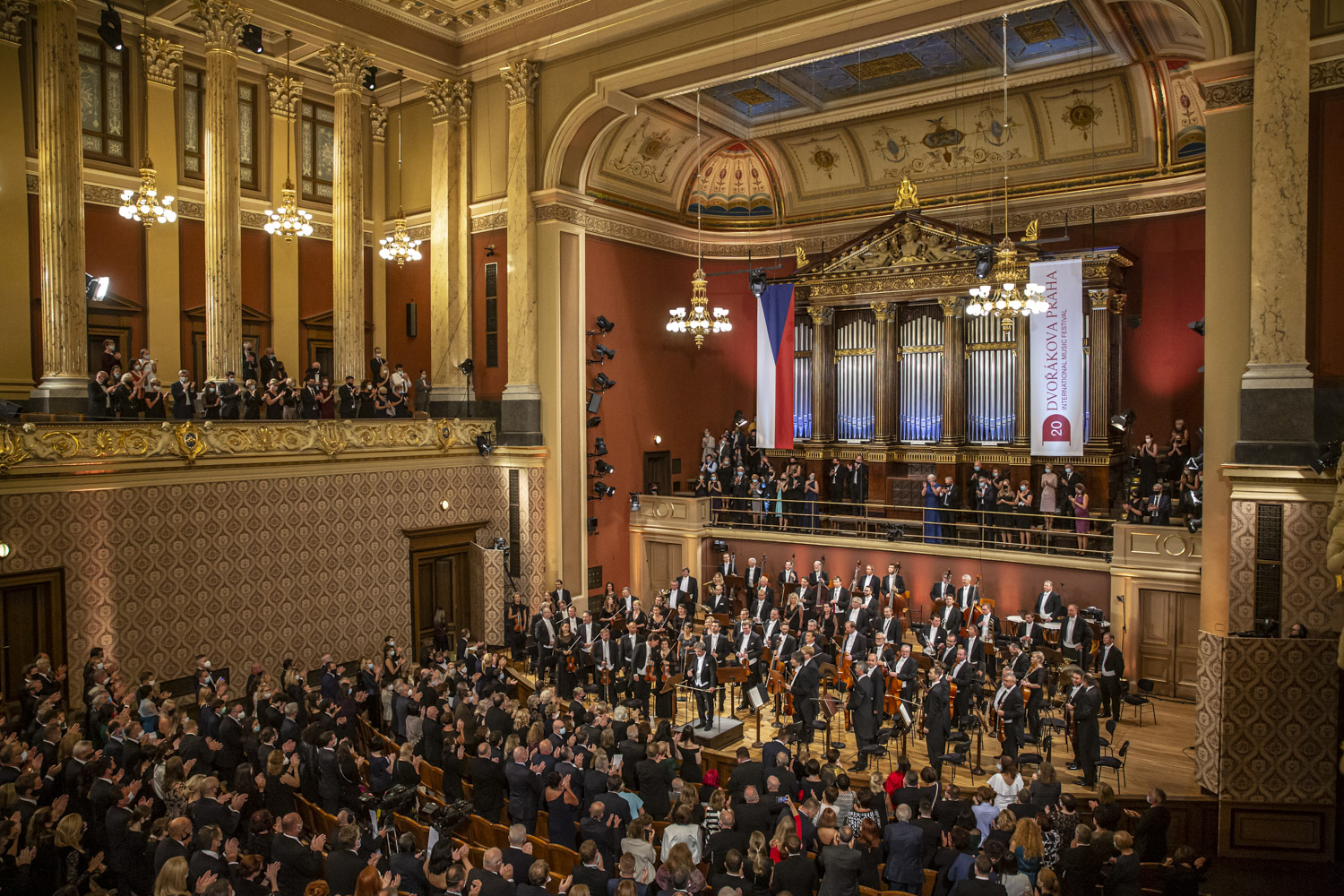
Josef Suk: Meditation on the Old Czech Chorale ‘St. Wenceslas’, Op. 35a
Antonín Dvořák: String Quartet No. 11 in C Major, Op. 61, B. 121
Franz Schubert: String Quintet in C Major, D. 956
The Chamber Series has temporarily merged with the exclusive Dvořák Collection cycle, and the opening concert will feature a trio of timeless composers performed by a first-class line-up consisting of the renowned Pavel Haas Quartet, along with Anastasia Kobekina playing an additional cello.
Contributing to the complete performance of Dvořák’s string quartets spread out over three years, the Pavel Haas Quartet will be performing String Quartet No. 11, a piece that showed more of the composer’s serious side, which echoed German classical music – something he loved as much as Slavic tenderness.
Doubling up the characteristic Dvořák instruments will add to the evening’s uniqueness and novelty. The use of a second cello in a string quintet was similarly unconventional in Schubert’s day. The dialogue between the Russian soloist and cellist Peter Jarůšek of the Pavel Haas Quartet will be a truly remarkable experience in itself.
These exquisite pieces of music, written in the bright key of C Major, will be preceded by Josef Suk’s Meditation on the Old Czech Chorale, ‘St. Wenceslas’. The quartet’s interpretation, played in the relative key of A Minor, will pay tribute to the roots of both European music and Czech statehood.
The Pavel Haas Quartet stands as one of the world’s premier chamber ensembles, commanding the most prestigious concert stages globally. Its recordings have earned it five Gramophone Awards, along with a multitude of other significant accolades. In 2022, BBC Music Magazine ranked the ensemble among the top 10 greatest string quartets of all time.
The Quartet’s performances regularly grace revered venues such as Concertgebouw and Muziekgebouw in Amsterdam, NCPA in Beijing, the Philharmonie and Konzerthaus in Berlin, Queen's Hall in Edinburgh, Elbphilharmonie in Hamburg, Wigmore Hall in London, Philharmonie in Luxembourg, Carnegie Hall in New York, Théâtre de la Ville in Paris, Accademia di Santa Cecilia in Rome, LG Arts Centre in Seoul, Musikverein in Vienna, and Tonhalle in Zürich, etc.
In the 2024/2025 concert season, the Pavel Haas Quartet will once again return to illustrious Carnegie Hall and London’s Wigmore Hall. The ensemble will embark on a European tour during the first half of the season, visiting Austria, Germany, Belgium, and the United Kingdom. It will close out 2024 with a tour across the United States. Audiences in the Czech Republic can look forward to several performances at the Dvořák Prague Festival, where the Quartet has served as an artist-in-residence and curator of chamber concerts since September 2022, including a three-season exploration of Dvořák’s string quartets and chamber works.
The Pavel Haas Quartet records exclusively for Supraphon. Its most recent album, *Brahms Viola and Piano Quintets* (2022), featuring Boris Giltburg and former member Pavel Nikl, met with widespread acclaim. The Quartet’s prior release, *Shostakovich String Quartets* (2019), garnered the Recording of the Year prize at the Classic Prague Awards, and The Times hailed it as one of the 100 best recordings of the year.
The ensemble has received five Gramophone Awards for its recordings of Dvořák, Smetana, Schubert, Janáček, and Haas as well as for Dvořák’s String Quartets No. 12 “American” and No. 13, which also took the 2011 Gramophone Recording of the Year award. Additional honours include a BBC Music Magazine Award and the 2010 Diapason d’Or de l’Année for the ensemble’s recording of Prokofiev’s String Quartets No. 1 and No. 2.
A victory at the Paolo Borciani Competition in Italy in 2005 marked the first milestone of the Pavel Haas Quartet’s career. A nomination for ECHO Rising Stars in 2007 followed, along with participation in the BBC New Generation Artists program from 2007-2009, and a Borletti-Buitoni Trust Special Ensemble Scholarship in 2010.
The Pavel Haas Quartet was founded in 2002 by Veronika Jarůšková, and violist Pavel Nikl, who remained a member until 2016 and who continues to be a frequent guest performer at string quintet concerts. The ensemble’s members studied under the legendary violist Milan Škampa of the Smetana Quartet. The Quartet takes its name from the Czech composer Pavel Haas (1899–1944), Janáček’s most promising pupil, who was imprisoned by the Nazis in the Terezín ghetto in 1941 and tortured to death three years later in the Auschwitz concentration camp. His musical legacy includes three exquisite string quartets.
source: artevisio

Described by Le Figaro as an "unrivaled musician", Anastasia Kobekina is known for her breath-taking musicality and technique, her extraordinary versatility and her infectious personality.
Highlights of the 2023/24 season include performances with renowned orchestras such as the Tonhalle Orchestra Zurich conducted by Paavo Järvi, the DSO Berlin with Andris Poga, Frankfurt Radio Symphony with Anja Billhmeier, the Czech Philharmonic Orchestra conducted by Jakub Hrusa, the Orchester National du Capitole de Toulouse, the Gstaad Festival Orchestra, and the Orchester National de Belgique.
Anastasia's performances take her to prestigious venues and festivals worldwide, including the Wigmore Hall, Concertgebouw Amsterdam, Lincoln Center, Konzerthaus Berlin, Tonhalle Zurich, Les Flâneries Musicales de Reims, Easter Festival of Aix-en-Provence, Festspiele Mecklenburg Vorpommern, Gstaad Menuhin Festival, Schleswig-Holstein Music Festival, and Rheingau Music Festival.
As a soloist, Anastasia has collaborated with esteemed orchestras such as the Konzerthausorchester Berlin, Kammerphilharmonie Bremen, Wiener Symphoniker, BBC Philharmonic, Kremerata Baltica, Tchaikovsky Symphony Orchestra Moscow, Wiener Kammerorchester, Symphoniker Hamburg, Orchestra della Svizzera Italiana, Royal Liverpool Philharmonic, Barcelona Symphony, and National Orchestra d’Ile de France. She has worked under the guidance of renowned conductors including Krzysztof Penderecki, Heinrich Schiff, Omer Meir Wellber, Vladimir Spivakov, Charles Dutoit, Jean-Christophe Spinosi, and Dmitrij Kitajenko.
Anastasia has achieved recognition at international competitions such as the Tchaikovsky Competition (St. Petersburg 2019) and Enescu Competition (Bucharest 2016). She was selected as a BBC New Generation Artist from 2018-2021 and received the Borletti-Buitoni Trust Artists award in 2022.
Born in Russia, Anastasia began her cello studies at the age of 4. She studied with Frans Helmerson and Prof. Jens-Peter Maintz in Germany before continuing her studies in Paris with Jérôme Pernoo. Currently, she is pursuing studies in baroque Violoncello with Kristin von der Goltz in Frankfurt.
Kobekina performs on Violoncello Antonio Stradivarius from 1698 generously loaned by Stradivari Stiftung Habisreutinger.

The Rudolfinum is one of the most important Neo-Renaissance edifices in the Czech Republic. In its conception as a multi-purpose cultural centre it was quite unique in Europe at the time of its construction. Based on a joint design by two outstanding Czech architects, Josef Zítek and Josef Schultz, a magnificent building was erected serving for concerts, as a gallery, and as a museum. The grand opening on 7 February 1885 was attended by Crown Prince Rudolph of Austria, in whose honour the structure was named. In 1896 the very first concert of the Czech Philharmonic Orchestra took place in the Rudolfinum's main concert hall, under the baton of the composer Antonín Dvořák whose name was later bestowed on the hall.
